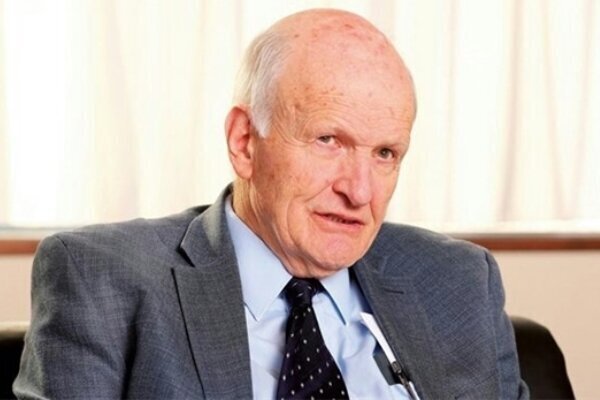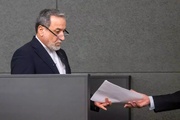Professor Frank N. von Hippel, former assistant director for national security in the White House Office of Science and Technology, says that Saudi Arabia should be required to inform the IAEA of nuclear facilities at the design and construction stage as Iran has agreed to do.
“I hope the report on construction of a uranium mill will result in the IAEA demanding access as it did in Iran,” Frank N. von Hippel tells Mehr News in an exclusive interview.
The following is the interview:
According to the New York Times, US intelligence agencies have in recent weeks published a confidential analysis of current actions inside Saudi Arabia and in cooperation with China to build the industrial capacity needed to produce nuclear fuel. The analysis has raised alarms that there may be covert moves by Saudi Arabia and China to produce unenriched uranium so that it can later be enriched to fuel nuclear weapons. What will be the reaction of the Trump administration to this report?
Exports/imports of technology for mining and separation of uranium from uranium ore are not considered sensitive. However, it is a concern that Saudi Arabia is not being transparent. If it has not informed the IAEA about its facilities, that may be a violation of its NPT safeguards commitment. You may recall that the IAEA Board declared Iran in violation because it had not informed the IAEA of its enrichment program before it became public in 2003.
With regard to the view within the Trump White House, President Trump does not care about international law. He divides the world into his friends and enemies – often depending upon whether they provide profitable business to him and his family. Friends like Saudi Arabia can do whatever they want. Enemies like Iran should be punished whether they have violated international law or not.
Congress has a more balanced view and has been fighting with the Trump White House about “turning a blind eye” toward Saudi Arabia’s transgressions, including Saudi Arabia’s war crimes in Yemen and its murder of the journalist, Jamal Khashoggi.
The State Department position is between. Secretary Pompeo supports the White House and the professionals support international law.
Despite the fact that Saudi Arabia is a member of NPT and has a comprehensive bilateral safeguards agreement in place with the IAEA, but unfortunately still refuses to accept the Agency's safeguards inspections, and despite repeated requests for several years, the Agency has not amended its obligations to allow the Agency to inspect. According to the New York Times, Saudi Arabia is trying to build a yellow cake factory. Accordingly, Saudi Arabia's nuclear program has entered a critical phase, which requires the IAEA to adapt bilateral agreements with the country to these sensitivities. Why does the IAEA not put pressure on Saudi Arabia in this regard and the IAEA’s Board of Governors does not make a serious decision?
Saudi Arabia should be required to inform the IAEA of nuclear facilities at the design and construction stage as Iran has agreed to do. I hope the report on the construction of a uranium mill will result in the IAEA demanding access as it did in Iran.
Some members of the Trump administration, including Jared Kushner and Michael Flynn, a former national security adviser to the Trump administration, have been accused of providing sensitive nuclear equipment to Saudi Arabia. However, Saudi Arabia appears to have secret ties to both the United States and China over its nuclear program. What is your assessment?
I understand that US nuclear equipment suppliers provided some design information to Saudi Arabia. The Congress put pressure on the Department of Energy which had given permission for transferring this design information and I believe it was stopped. To my knowledge, the US has not provided any nuclear technologies to Saudi Arabia.
Why is China trying to have a secret nuclear plan with Saudi Arabia? What are the goals of this issue?
In the past, violations of nuclear export controls by Chinese companies has been due to their interest in contracts and inadequate enforcement of international standards by China’s government.
Some experts have previously said that if the United States does not cooperate with Saudi Arabia under the 123 agreement and does not allow the country to enrich uranium and have a full fuel cycle, the country may resort to a secret program to have a full fuel cycle. Do you think the United States will be willing to give Saudi Arabia the right to enrich uranium, or does it want an agreement like the United Arab Emirates that does not allow uranium enrichment and reprocessing of plutonium (golden standards)?
There have been proposals within the US debate to loosen the “Gold Standard” on Saudi Arabia because otherwise, Saudi Arabia will take its nuclear business to other countries that don’t require the Gold Standard. Congress has pushed back, however, and forced the Trump Administration to adhere to the Gold Standard.
Interview by Javad Heirannia


























Your Comment